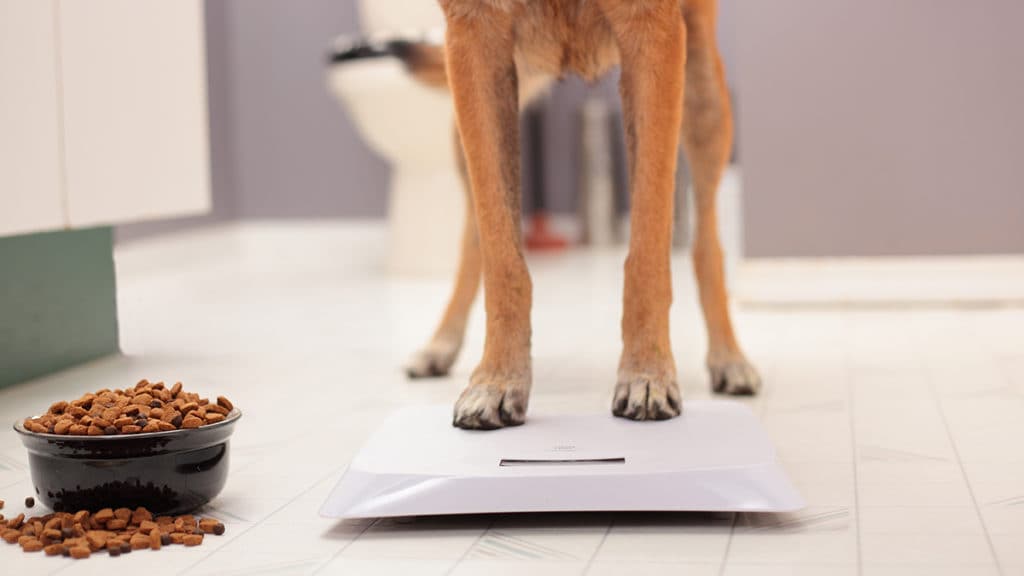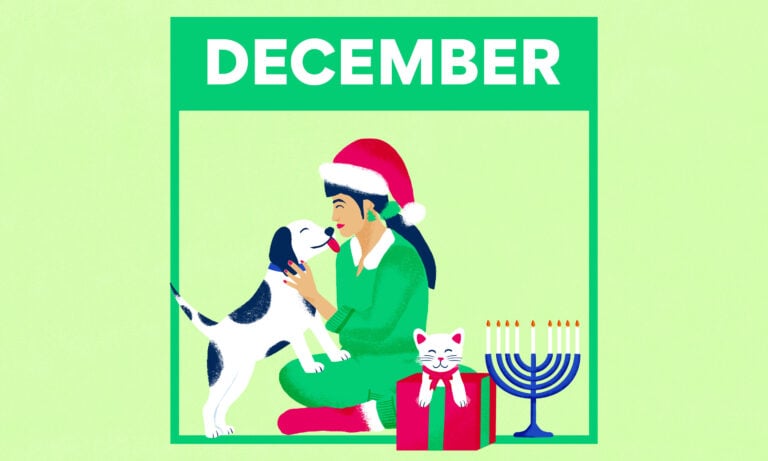So, the holidays are over, and it’s time to start the new year. Dust off the treadmill, renew your gym membership, vow to use that planner to stay more organized, and promise yourself that you will get your dog to the vet. Don’t we all just love the new year? A fresh start, a new lease on life, and a vibrant energy to do and be better! As much as the new year motivates us to be healthier and more fit, we should also give the same goals to our pets at home. Just like us, our furry friends need to maintain a healthy diet and stay at their recommended weight to live the longest, healthiest lives they can, and a dog weight loss plan can help a pooch that needs to lose a few pounds do just that! Overweight dogs are becoming an epidemic in our country and posing dangerous health concerns for our pets. Just like us, on overweight dog may have problems with many diseases and health concerns such as:
- Type 2 diabetes
- Osteoarthritis
- High blood pressure
- Skin disease
- Thyroid problems
- Seizures
- Heart and respiratory disease
- Kidney disease
- Certain types of cancer
- Decreased life expectancy (up to 2.5 years)
So, how can we get our fat dogs fit for the new year and have them living longer, healthier lives? First, it is important to recognize the signs of obesity in your pet. Many pet parents do not even realize their pets are overweight. A veterinarian’s assessment for obesity in pets is a matter of appearance and touch. What are some signs that your pet is overweight?
- Inability to easily feel your pet’s ribs and vertebrae.
- No appearance of a tucked-in waistline right behind their last ribs.
- A Body Condition Score (BCS) of more than 5. This is a chart that helps veterinarians determine where pets fall on the scale of thin to obese.
If you find that your pet needs to lose some pounds, the next step is organizing a dog weight loss plan. Be sure to consult your veterinarian regarding the best plan for your pet. Here are some tips on helping your overweight dog lose weight:
1
See Your Vet
First, have your pet evaluated by your veterinarian and routine bloodwork performed to rule out systemic disease. Many times, weight gain can be caused by systemic illnesses such as hypothyroid.
2
Measure Meals
Have your veterinarian establish the ideal body weight that your pet should be at and make that your pet’s goal weight. Once the ideal body weight has been established, feed your pet the recommended amount according to his ideal body weight to help your obese dog shed the extra pounds.
3
Establish a Feeding Schedule
Many obese dogs graze on food all day that is left out for them. With overweight pets, measure out the exact amount of food they should be getting, and give it to your pet at scheduled times throughout the day.
4
Cut Down on Treats
This is a tough one, but people do not realize how many calories treats can contribute to their pet’s diet. Just cutting out the treats alone, or switching to low-fat treats, can result in weight loss for your pet. Try Hill’s Prescription Diet Metabolic Treats.
5
Exercise, Exercise, Exercise!
Just like us, pets need to exercise to lose weight – especially overweight dogs. Dog toys like Chuckit Classic Launcher, KONG Classic Dog Toy, and JW Pet Hol-ee Roller Dog Toy help encourage exercise for your obese dog.
6
Consider Switching Diets
Finally, if your pet is not responding to decreasing the treats, or the proper amount of food and exercise, please speak with your veterinarian regarding a low-fat diet. I frequently prescribe Hill’s Prescription Diet Metabolic Weight Management Diets and Nutro Ultra Weight Management.
Let’s start 2017 on the right paw for our pets and develop a dog weight loss plan to get them back on track. They depend on us to make the right choices for them and to keep them healthy and strong. Our pets give us so much love, devotion and loyalty, so let’s give them the benefits of health, happiness and a long, wonderful life. Happy New Year everyone!
Share:













